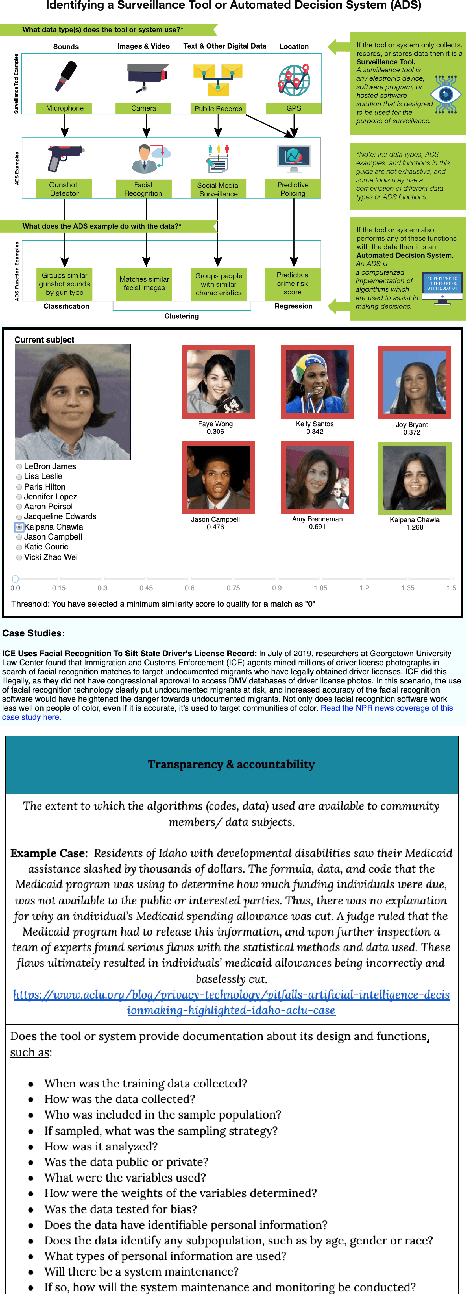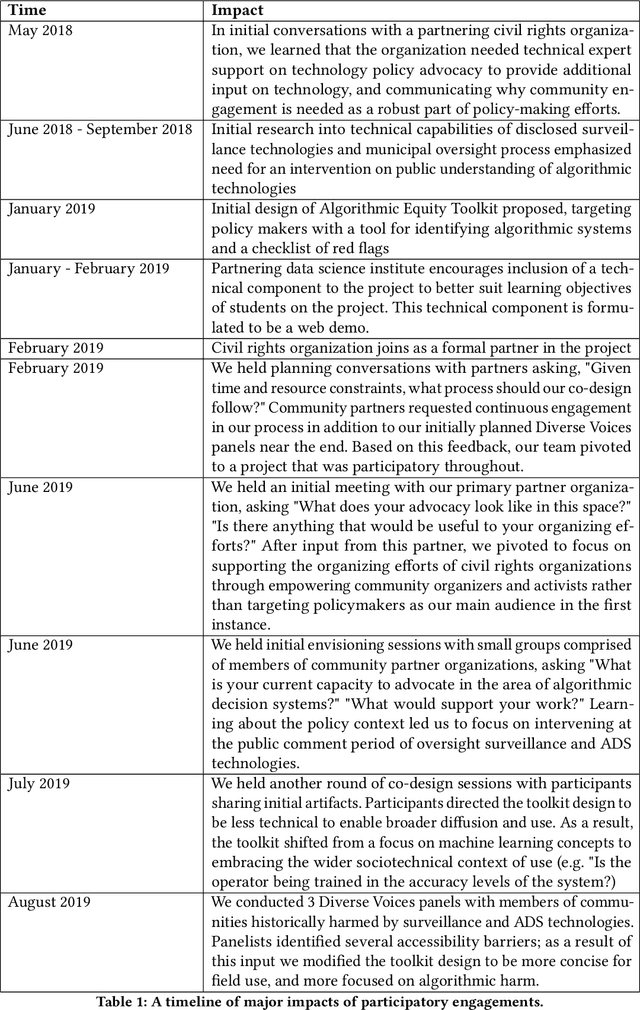Dharma Dailey
An Algorithmic Equity Toolkit for Technology Audits by Community Advocates and Activists
Dec 06, 2019

Abstract:A wave of recent scholarship documenting the discriminatory harms of algorithmic systems has spurred widespread interest in algorithmic accountability and regulation. Yet effective accountability and regulation is stymied by a persistent lack of resources supporting public understanding of algorithms and artificial intelligence. Through interactions with a US-based civil rights organization and their coalition of community organizations, we identify a need for (i) heuristics that aid stakeholders in distinguishing between types of analytic and information systems in lay language, and (ii) risk assessment tools for such systems that begin by making algorithms more legible. The present work delivers a toolkit to achieve these aims. This paper both presents the Algorithmic Equity Toolkit (AEKit) Equity as an artifact, and details how our participatory process shaped its design. Our work fits within human-computer interaction scholarship as a demonstration of the value of HCI methods and approaches to problems in the area of algorithmic transparency and accountability.
 Add to Chrome
Add to Chrome Add to Firefox
Add to Firefox Add to Edge
Add to Edge